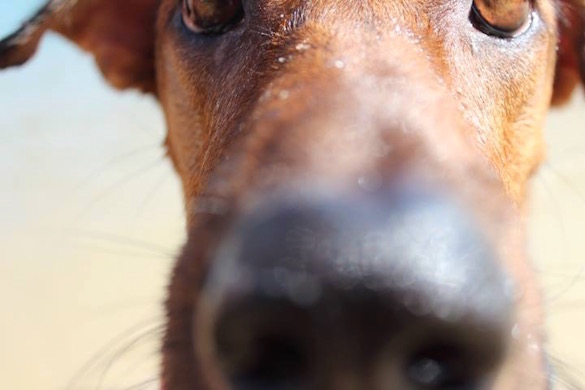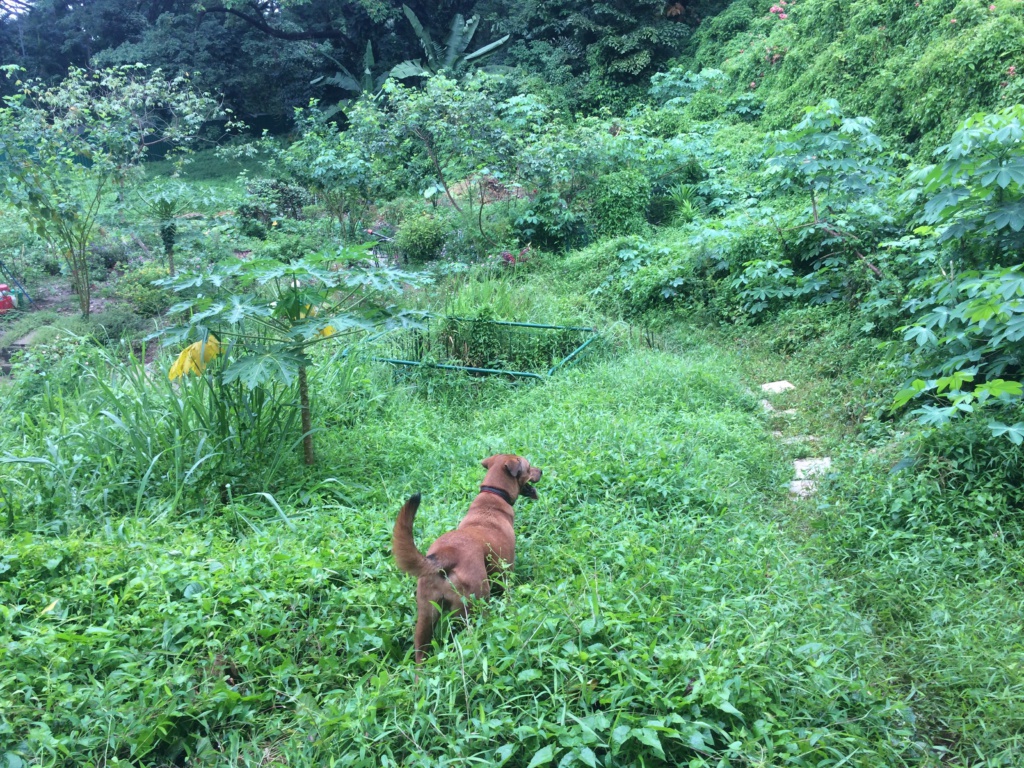I often get asked what do I do if I don’t see results in a training session with my dog. Everyone does it very differently, so please do not take this as the ONLY way. It’s been a way that I’ve used to raise all my dogs. There’s no formula, it’s just a set of principles that I live by.
PERSPECTIVE MATTERS
How and what you define as training matters. I don’t “train” my dogs. I RAISE them. It’s two very different perspectives because when we think about training, there are goals, learning take aways, a curriculum, objectives a format etc.

RAISING a dog is about teaching the dog to experience and do life with us. In this perspective, even a walk in the park with a reactive dog is training. It’s a lifestyle. A way of being. It’s like a artist taking in an apprentice and mentoring and coaching that apprentice by showing him/her the ropes. It’s takes a longer term view and it focuses a lot more on the behaviour rather than obedience. It’s an old school but instinctual way of living with a dog.
Raising a dog, however, is harder because it requires owners to always be present physically, psychologically and emotionally. It means owners have to always be ready to either reward their dogs because their dogs offered a behaviour that they want to reinforce or to give out an appropriate consequence for behaviours that they want to diminish. There’s no TURN OFF time as long as we are living with our dogs.
When I get a puppy, I immediately think about what I want the puppy to be able to do with me. What activities do I want to take my dog on? How much of my life do I expect my dog to share with me? All these has an impact on how much “training” is required and that forms the development plan for the dog from puppy to the day it takes its last breath.
This process is what I call the EXPERIENCE. Yes, like an employee experience. How do you communicate your company’s vision, mission, culture and values to a new employee?
I usually start with short walking drills. I use it to communicate a culture that I wish to set for my dog. It’s like an orientation programme for a new employee of a company. It’s an induction into the way of life, the way I communicate, my values, my vision and mission. It’s highly intentional. It starts out with an end in mind and each session is about creating a successful experience, meaning that the dog learns to trust my decision making all the time, every time.
From my perspective, anything and everything is training. I’m constantly mentoring and coaching my dog. I’m constantly evaluating our growth and making adjustments to facilitate learning and development not just for my dog but for myself as a handler.
DO MORE FUN THINGS TOGETHER AND LESS HOMEWORK
Nobody enjoys homework every day. I’m sure you’ve heard of the famous saying “All work and no play makes Jack a dull boy.” Similarly, no dog enjoys heeling every day for like the entire park. If I am teaching a dog to heel at a new environment, I usually don’t walk the entire park with it trying to teach it to heel. I just choose a spot and walk up and down with the dog at one area. The moment the dog heels well for 3 to 4 steps if it’s my first time there, I’d stop the exercise and reward the dog by giving it a release command to communicate, it’s now time to go do dog stuff. I don’t continue with the exercises after this either. Instead, I take the dog AROUND the park and we enjoy the sights, sounds and smells together. Why? Because I am still training the dog.
REMEMBER THE SABBATH
Everyone needs rest. Hey, even God needed a rest. The Bible says He created the world and He rested on day 7! So if a supernatural being needed a day off, I reckon, we need more!
I don’t just give the dog a rest day. I have several sabbaths. After each intentional session with me, if it’s a young dog, I’ll put it back in its crate or pen or space and allow the dog to rest and finally sleep for at least 2 to 3 hours. I want the dog to process all the information that we experienced together earlier.

I don’t have a designated day off. It depends on my work schedule. Similarly, dogs who live with me do not know when their day off will be but they do get one. On their off day, I don’t do any formal training. By that, I mean teaching the dog to “heel” or teaching the dog to “leave it” etc. So there’s no formal session. On a dog’s off day, I either let it laze at home, if it’s a lazy dog or I take it out to do something it likes! For example, my dog Lady-Mae either likes to snooze at home or she enjoys a romp in the off the beaten tracks of Singapore!
ENJOY THE PROCESS OR THE JOURNEY
Too many dog owners focus too much on the Obedience commands. I didn’t even teach Lady-Mae the obedience commands until she was 14months old. When I adopted her at 3.5 months old, I took the first year to introduce her to how life would be like with me. We went to all the places that I would want her to go with me.
Frankly, Lady-Mae was an Obedience School drop out. She only mastered basic obedience at 20months and at 2.5 years, she mastered the advance obedience commands reliably. Even though she didn’t know the commands, she was however a balanced dog by the time she turned 12months.
Knowing what you want from your dog will help keep you focused on your journey. It will stop you from following what is trendy. I take the perspective of raising a dog because I think about my dog’s development not just in the early days but I look at it from a life long journey.
Lady-Mae may be 8 but she’s still learning. As a senior dog, we need to start looking into her mobility. How do we help her continue to be mobile, agile so that she can continue to live out her best life. If you have just gotten a puppy, your current focus will take on a very different trajectory from mine.
HAVE AN HONEST CONVERSATION WITH YOUR TRAINER
The last thing to do is to have an honest conversation with your trainer. Don’t keep the frustration to yourself. Rant and learn to trust your trainer with your failures. This is the best way to grow and learn. I didn’t become a good dog handler in 1 or 2 years. It took me 15 years to encounter a full cycle of raising a dog from puppy to the day it passed on. During this time, I had people who were dog breeders, trainers, handlers and my vet coaching me actively. Your dog trainer became a trainer because he/she wanted to help people. If your dog trainer says I’m here to train dogs, then he/she isn’t a good trainer because in reality, YOU are the trainer of your dog. Your dog trainer trains YOU. When you are able to say I cannot do something, your trainer will have clarity about what you can do because there’s a gazillion ways to train a dog. Your dog trainer is trying to find a style that’s unique to you and your dog.
I hope you will find these five pointers helpful and I hope it’ll give you something for you to consider and try out. If you have a topic that you wish to have addressed, either leave me a comment or send me a DM on instagram @theroyaltail and if it’s something I have experience with, I’d be happy to share with you my perspective.
* This blog is designed to be a community where pet owners can learn and share. The views expressed in each post are the opinion of the author and not necessarily endorsed by Pawjourr. Always consult your veterinarian for professional advice.
